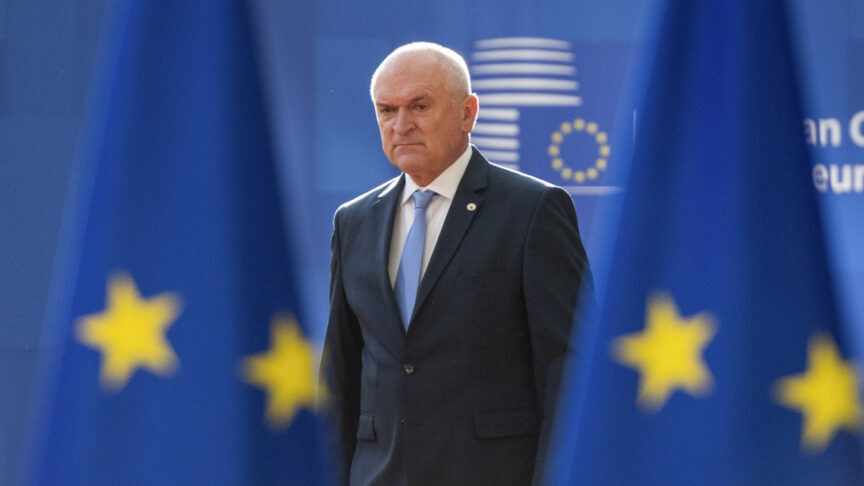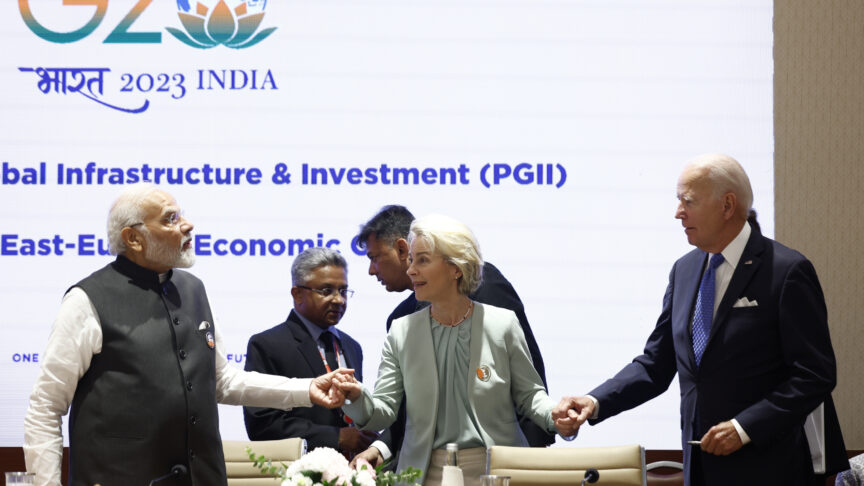US, Europe: get ready for estrangement
President Obama's continued foreign policy pivot away from Europe may be unwelcome in the EU, but it creates an opportunity for Germany to show that it is capable of taking responsibility in foreign affairs.
President Obama's continued foreign policy pivot away from Europe may be unwelcome in the EU, but it creates an opportunity for Germany to show that it is capable of taking responsibility in foreign affairs.
–
The overwhelming feeling in Europe following Barack Obama’s re-election was a sense of relief. Although European approval of his administration’s foreign policy has dipped since he took office in 2009 – particularly over his increased use of drones and his perceived failure to put greater pressure on Israel – Europeans overwhelmingly preferred him to Mitt Romney. Indeed, according to one poll carried out in 12 European Union member states before the election, 75 percent said they would vote for Obama and only 8 percent for Romney if they could choose.
Still, Obama’s second-term foreign policy has the potential to divide Europe – and to divide Europe and America. Two developments in particular will shape Obama’s second-term foreign policy – deficit woes and a pivot towards the Asia-Pacific. Both will create tough choices for Europeans as they struggle to deal with the euro crisis.
First, the downsizing of the U.S. military and the “pivot” to Asia mean that Europeans are increasingly going to have to take responsibility for sorting out problems in their own neighbourhood. As former German Foreign Minister Joschka Fischer recently argued, “Europe must grow up and develop the capacity to defend its own interests, because the day is fast approaching when others will be less able and willing to do this for us than they once were.” Europeans will also need to decide what role, if any, they want to play in supporting the United States and its allies in Asia in balancing against Chinese power in the region.
Germany – Europe’s central power – is both crucial and problematic in such calculations. With France weakened and Britain marginalised, the tighter and more coercive EU that is emerging from the crisis is one based to a growing degree on German preferences. Obama is extremely popular in Germany, but Berlin’s deeply-held views on the use of military force – and its increasingly close relationship with China – have the potential to create a Europe-America split.
Speaking last year, former U.S. Defense Secretary Robert Gates said that NATO is turning into a “two-tiered alliance,” one divided between “those willing and able to pay the price and bear the burdens of alliance commitment” and “those who enjoy the benefits of NATO […] but don’t want to share the risks and the costs.” In particular, Gates criticised those members of the alliance that spend under the agreed 2 percent of GDP on defense. He did not name Germany – which spends just 1.3 percent of GDP on defense – but undoubtedly had it in mind. Germany’s austerity-led approach to the euro crisis, meanwhile, is exacerbating defence budget cuts in other EU member states.
Germany’s reluctance to spend to improve its military capabilities, or even support military interventions such as that in Libya last year, undermines European hard power in its own neighbourhood. Indeed, some Germans seem to imagine that Europe can and ought to somehow emulate Switzerland, even though Europe’s neighbourhood includes states with great-power ambitions such as Russia, as well as an unstable Middle East and North Africa. Other Germans seem simply to think that they can leave security to others in Europe, such as Britain and France.
But Germany could also complicate things with China. The US “pivot” is part of a shift toward a tougher approach vis-à-vis an assertive China, and is based on a mixture of containment and engagement. But even as the United States is tightening its relationships with Asian democracies that feel increasingly threatened by Chinese power, a “special relationship” is developing between China and Germany, based on the exponential growth of German exports to China, a shared analysis of the global economy since the financial crisis, and the Chinese perception that Germany is now the dominant player in Europe. All this has meant Germany appears increasingly reluctant to confront China.
Of course, it’s important to remember that the relationship between Germany and the United States now is nowhere near as bad was it was when George W. Bush was in the White House and Gerhard Schröder occupied the chancellery in Berlin – the U.S. and Germany still co-operate on a range of international issues, including Afghanistan and Iran. But for now, US foreign policy is pushing Germany and America further apart. And, given Germany’s increasingly central role in the EU, Europe as a whole could find itself increasingly estranged from the US.
Europe may overwhelming have preferred Obama in this month’s election, but the first signs of estrangement may become apparent under his watch.
This article first appeared on CNN's blog
The European Council on Foreign Relations does not take collective positions. ECFR publications only represent the views of their individual authors.


